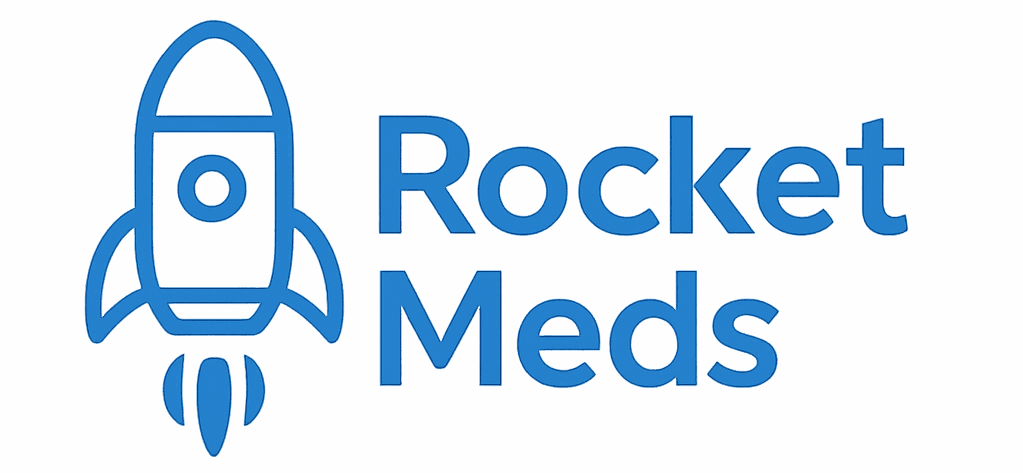Non-prescription drugs for anxiety are increasingly discussed by people who want relief from stress and worry without starting a prescription medication right away. Anxiety is something I see often in my patients, and it does not always look the same in everyone. For some, it is a sense of unease that shows up before a big meeting or an important decision. For others, it can become more constant and overwhelming, affecting sleep, focus, and daily routines. Prescription medications are very effective for many people, and at times they are necessary.
Still, I am often asked, Are there any over the counter medications for anxiety that are safe and worth trying? This is a reasonable question, and it is important to understand what choices exist, what their limits are, and how over the counter stress meds may fit into a broader approach to care.
Understanding Anxiety and Its Impact
When patients ask me about calm OTC medication, I often start by explaining that anxiety is more than just feeling nervous once in a while. It is something that can affect both the body and the mind at the same time. Some people notice their heart racing or their stomach tightening up. Others talk about feeling restless, tense in their muscles, or unable to settle down even when they want to relax.
For those with mild symptoms, small lifestyle changes can sometimes make a big difference. But when these feelings start to interfere with sleep, work, or relationships, it makes sense that people begin looking for other options, including over the counter stress meds. That is often when the question comes up about whether over the counter stress meds might help. (panicandanxiety.org)
Are There Any Over the Counter Medications for Anxiety?
This is one of the most common questions I hear: Are there any over the counter medications for anxiety? The answer depends on how we define “medication.” In most countries, there are no truly strong anti-anxiety drugs available without a prescription because of concerns about dependence, sedation, and safety. However, there are non-prescription drugs for anxiety that fall into categories such as herbal remedies, amino acid supplements, vitamins, and antihistamines. Although they are not as strong as prescription drugs, some people may still experience meaningful relief when these are used correctly.
Antihistamines as Calm OTC Medication
One of the few options that sometimes acts as a calm OTC medication is antihistamines. Hydroxyzine is one example of an antihistamine that doctors sometimes prescribe specifically for anxiety. The versions you can buy without a prescription, such as diphenhydramine (often recognized as Benadryl) or doxylamine, are not approved for anxiety treatment, but they do have calming and sedating effects. Some people find they take the edge off in the short term, yet the downside is that they often bring side effects like drowsiness, a dry mouth, or trouble concentrating. For that reason, they are not the best choice for daily use and should not be seen as a long-term way to manage anxiety.
Herbal Non-Prescription Drugs for Anxiety
Many patients are curious about herbal options, since these are some of the most accessible non-prescription drugs for anxiety. You will often see them sold as natural over the counter stress meds, and some have been studied more than others. Valerian root has long been used for sleep, and some people also report it helps with anxious feelings. Passionflower is often chosen for its calming effect, while chamomile is a more familiar option that many enjoy as a tea, though it is also available in capsule form. Lavender oil, particularly in capsule preparations studied in Europe, has shown some encouraging results for easing nervousness.
That said, these remedies are not all created equal. The amount of evidence behind them varies, and the quality of supplements on the market is inconsistent. More importantly, herbal calm OTC medication can interact with prescription drugs, which is something many people do not realize. If you are thinking about trying herbal over the counter stress meds, I always recommend choosing reputable brands and talking with a healthcare provider first to make sure they are safe for your situation.
Vitamins and Minerals for Stress Support
Another angle involves nutrients that support the nervous system. Magnesium, vitamin B complex, and omega-3 fatty acids are sometimes described as natural over the counter stress meds. Deficiency in these nutrients can worsen anxiety, irritability, or sleep problems. For example, magnesium supports muscle relaxation and neurotransmitter balance. B vitamins play an important role in how the body handles energy and stress, and omega-3 fatty acids from fish or algae oils may support mood by reducing inflammation. Even though vitamins and minerals are not medications in the traditional sense, they can still serve as non-prescription options that help steady the body and make anxiety symptoms less likely to flare up.
Amino Acids and Brain Chemistry
Some over the counter products target brain chemistry more directly. L-theanine, an amino acid found in green tea, has been studied for its calming effect without sedation. It may reduce physical tension and improve focus, which is why it is often marketed as calm otc medication. Another compound, 5-HTP (5-hydroxytryptophan), is a precursor to serotonin, the neurotransmitter often targeted by prescription antidepressants. While 5-HTP supplements are available, they should be used with caution, especially if someone is already on prescription antidepressants, due to the risk of serotonin syndrome.
The Role of CBD
Cannabidiol, better known as CBD, has become one of the more popular non-prescription drugs for anxiety. Unlike THC, the compound in cannabis that causes a ‘high,’ CBD does not have intoxicating effects. Many of my patients tell me they use it to ease worry, improve their sleep, or simply feel more at ease. The research is still developing, but early findings suggest that CBD may offer real promise for managing anxiety symptoms. It is often marketed as a calm OTC medication in oils, capsules, or gummies. However, quality control is a major issue in the CBD market, and consumers should look for third-party tested products. (adaa.org)
What Over the Counter Stress Meds Cannot Do?
Although there are options, it is important to be realistic. Over the counter stress meds are not designed to cure moderate or severe anxiety. At best, they can ease symptoms or provide some support alongside good daily habits. They should not be seen as a replacement for therapies that have strong evidence behind them, such as cognitive behavioral therapy or prescription treatment when it is needed. In my experience with patients, these remedies work best when used as a complement, not the centerpiece, of an anxiety care plan.
Lifestyle Still Matters Most
Even when calm OTC medication is an option, I often tell my patients that the real progress usually comes from what they do day to day. Staying active, getting proper rest, using simple relaxation practices like deep breathing or meditation, reducing caffeine and alcohol, and keeping close to supportive friends or family can all make a real difference for anxiety. For many people, these everyday steps do more to settle the nervous system than any pill or supplement ever could. Over the counter stress meds can play a role, but they work best when added to the foundation of healthy routines.
Safety Considerations
Whenever someone is thinking about trying non-prescription drugs for anxiety, safety should come first. Just because something is labeled natural does not mean it is completely safe. Even familiar supplements can interfere with prescription medicines such as blood thinners, antidepressants, or blood pressure drugs. The right dose for one person may not be right for another, and extra caution is needed during pregnancy or breastfeeding. That is why I always advise checking with a healthcare provider before starting any new over the counter medication for anxiety. Even a short discussion with your clinician can go a long way in avoiding complications and making sure the treatment is both safe and effective.
Final Thoughts
So, are there any over the counter medications for anxiety that can truly help? In certain situations, yes, but they come with limits. For some, relief can come from things like antihistamines, herbal remedies, vitamins, amino acids, or even CBD. They can certainly help in the right situations, though each has its upsides and downsides. Most of the time, they’re better for easing occasional stress or for giving a little extra support alongside good daily habits. But if anxiety sticks around or starts getting in the way of everyday life, that’s when it’s wise to check in with a professional.
Over the counter stress meds can certainly have a place, but they should be used with realistic expectations. They can ease symptoms and offer comfort, yet they are most effective when combined with lifestyle strategies and, when needed, proper medical treatment. The encouraging part is that anxiety can be managed effectively. Many people find real relief when they use safe, non-prescription options wisely while also focusing on their overall well-being.
For a deeper look at the most effective medications for anxiety, you may want to explore this article: https://www.rocketmeds.store/best-antidepressant-for-anxiety/






